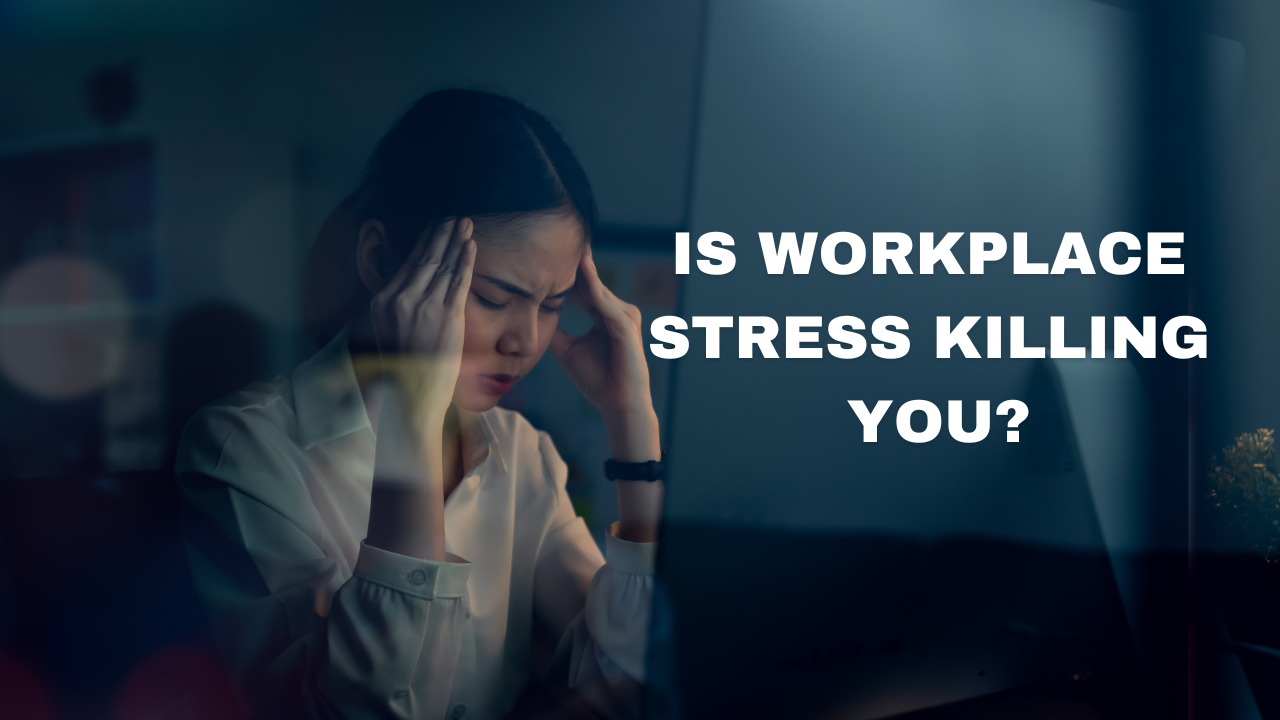Contents
-
news
-
Health
-
mental health
World Mental Health Day: Why ‘push harder’ might be the worst advice for today’s employees
There’s a fine line between stress that’s good for you and stress that can paralyze you. Excessive stress and poor coping mechanisms can lead to inflammation and health problems.

Is workplace stress killing you?
How many of us can honestly say that we have never had a day at work when we felt completely overwhelmed, like everything was out of control? Maybe not very much. Stress at work comes in many forms, and over time, we all learn to deal with it. But when we hear about tragic cases like people taking their own lives due to workplace pressure, it shakes us to the core. These stories are becoming all too familiar, raising urgent questions about the impact of stress in the workplace mental healthWe empathize because we know how hard it can be, and we are concerned, too. The workplace has increasingly become a major source of mental health struggles, and that’s why this year world mental health day Focuses on this issue.
With so many people feeling overwhelmed by professional demands, it’s more important than ever to have open conversations about the boundaries between work and life. With Dr. Saurabh Mehrotra, Associate Director, Department of Psychiatry, Medanta, we will try to understand how we can address the growing crisis of mental distress in the workplace.
talking about how chronic workplace stress Affects the brain and body over time Dr Saurabh explains, “We are seeing a huge number of employees struggling with stress – around 60-80%. About 50% are close to burnout. Stress has become a constant presence, especially at work. Its effects are wide-ranging, affecting physical health, emotional well-being, productivity and relationships.
Early symptoms of stress include changes in sleep and appetite, which often either increase or decrease. Stressful eating, especially cravings for sweets, is common. Fatigue, disinterest in activities, and feeling overwhelmed are early danger signs. People may lose interest in work, avoid social interactions and experience unexplained physical pain such as headaches, body aches and gastrointestinal problems.
Emotionally, stressed individuals often become irritable, anxious, or depressed. They struggle with focus, concentration and memory, and may take more sick days. Left unchecked, it can turn into anxiety disorders, depression or even suicidal thoughts. Physical health can also deteriorate due to increased risk of high blood pressure, diabetes and even heart attack or stroke, especially for people who work more than 55 hours a week.
In severe cases, we see people who are completely overwhelmed, unable to disconnect from work even at home, and emotionally exhausted to the point of quitting work or, worse, contemplating suicide. Are considering. We also see that stress is exacerbating medical conditions such as high blood pressure, leading to cross-referrals to other specialists. Ultimately, stress can lead to serious health problems, including heart attacks.
What are the most common workplace triggers?
At a time where industry leaders prefer Narayana Murthy With employees being urged to work 70 hours a week, and Ola CEO Bhavish Aggarwal dismissing weekends as a “Western concept”, it raises an important question – what are the common triggers of workplace stress? Dr. Saurabh says it’s a combination of things that causes stress in the workplace. “General stressors in the workplace often arise from long working hours, heavy workloads and tight, simultaneous deadlines. Many employees struggle with lack of rest, both physically and mentally. For example, I recently saw a patient whose blood pressure had spiked after three sleepless nights trying to meet a deadline. The commute adds another layer of stress for those working on the site.
Additionally, unclear roles and lack of career development frustrate many employees, leaving them feeling stagnant and unfulfilled. Organizational culture also plays an important role. Unsupportive coworkers, disrespectful bosses, and even incidents of harassment can create a toxic environment. We have seen cases where workplace harassment has led to tragic outcomes, including suicide.
It’s important to remember that employees also face personal stressors, such as financial issues or family health concerns. When the workplace does not prioritize both physical and mental well-being, it increases the pressure, making it harder for individuals to cope.
How much workplace stress can you handle?
But the fact is that no matter how happy we feel at our workplace, there will always be stress. But is stress so bad? “Some level of stress can be beneficial. Stress generally involves two major factors: the pressure the individual faces and his or her ability to deal with it. Often, our perception of a situation makes it more stressful than it actually is. When pressure exceeds our ability to cope, or we perceive a situation as overwhelming, we experience stress.
There is an optimal zone where stress helps improve performance. But prolonged stress, without returning to baseline, causes sleep disturbances, mood swings and physical symptoms such as high blood pressure or fluctuations in sugar levels. If these symptoms persist and physical disorders are ruled out, it is probably stress related.
Basic self-help measures include adequate sleep (7–8 hours), healthy diet, regular exercise (150 minutes of moderate or 300 minutes of light exercise per week), and meditation (5–10 minutes daily). Reducing screen time, increasing social engagement, pursuing hobbies, and spending time in nature also help reduce stress.
Prioritizing tasks, improving time management, and practicing perseverance – especially in the workplace – are important. Additionally, self-kindness and compassion are important for maintaining mental well-being. Ultimately, how we think greatly affects how we manage stress, so adopting a positive mindset can help tremendously.
So if you see a co-worker showing clear signs of distress, encourage them to seek help!
Get the latest news live on Times Now with breaking news and top headlines on mental health, wellness and more from around the world.
mental health
Narayana Murthy


